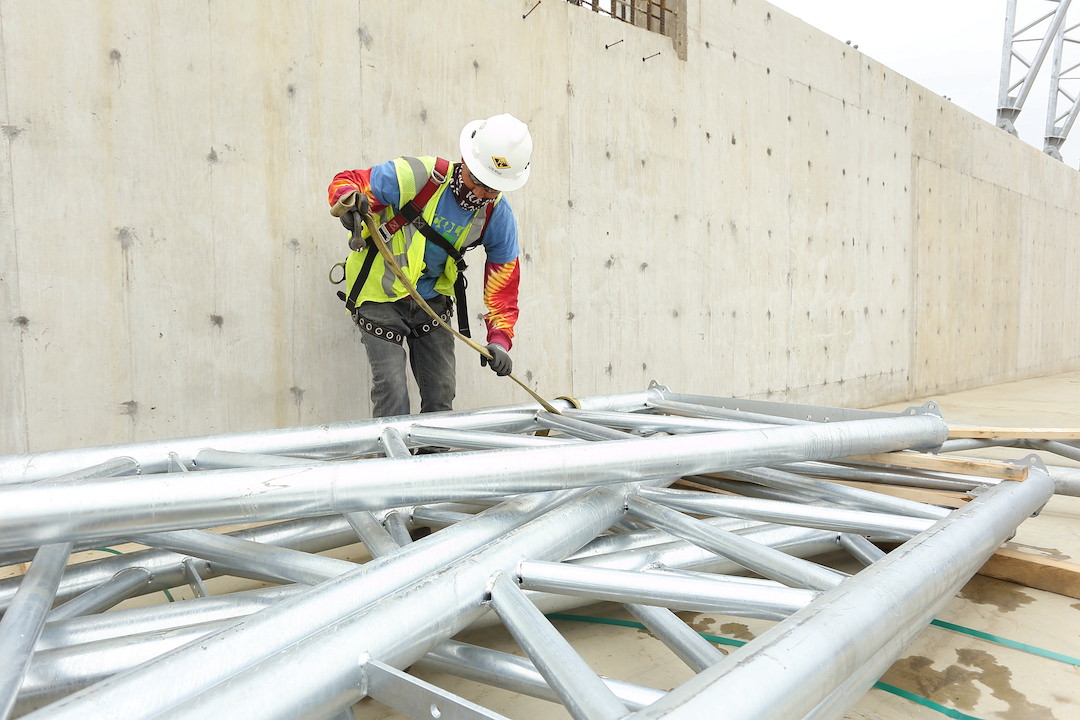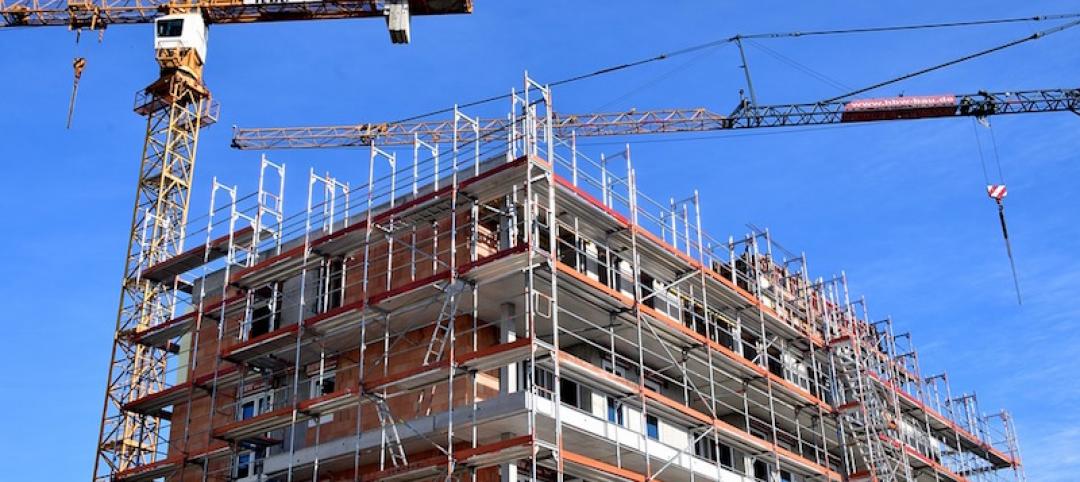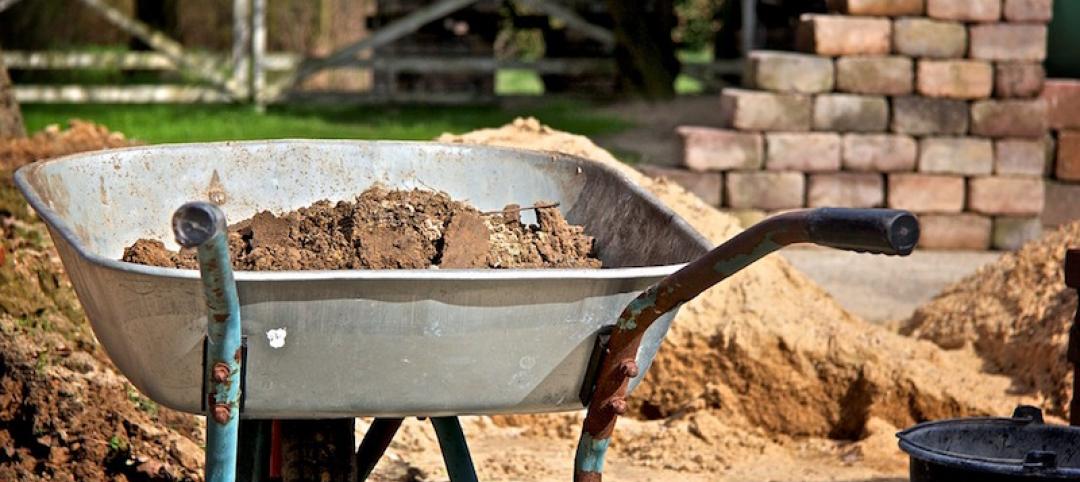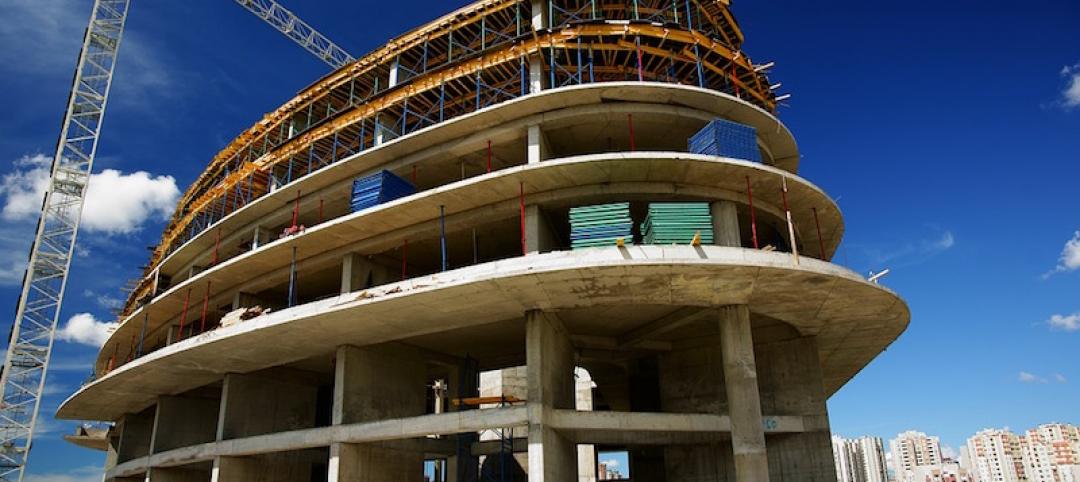Prices of construction materials jumped more than 20% from January 2021 to January 2022, according to an analysis by the Associated General Contractors of America of government data released today. The association recently posted a new edition of its Construction Inflation Alert, a report to inform project owners, officials, and others about the challenges volatile materials costs, supply chain disruptions, and labor shortages posed for construction firms.\
“Unfortunately, there has been no letup early this year in the extreme cost runup that contractors endured in 2021,” said Ken Simonson, the association’s chief economist. “They are apparently passing on more of those costs but will have a continuing challenge in getting timely deliveries and finding enough workers.”
The producer price index for inputs to new nonresidential construction—the prices charged by goods producers and service providers such as distributors and transportation firms—increased by 2.6% from December to January and 20.3% over the past 12 months. In comparison, the index for new nonresidential construction—a measure of what contractors say they would charge to erect five types of nonresidential buildings—climbed by 3.8% for the month and 16.5% from a year earlier.
A wide range of inputs contributed to the more than 20% jump in the cost index, Simonson noted. The price index for steel mill products soared 112.7% over 12 months despite declining 1.6% in January. The index for plastic construction products climbed 1.8% for the month and 35.0% over 12 months. The index for diesel fuel jumped 5.1% in January and 56.5% for the year. The index for aluminum mill shapes jumped 5.6% in January and 32.7% over 12 months, while the index for copper and brass mill shapes rose 4.1% in January and 24.8% over the year. Architectural coatings such as paint had an unusually large price gain of 9.0% in January and 24.3% over 12 months. The index for lumber and plywood leaped 15.4 for the month and 21.1% year-over-year. Other inputs with double-digit increases for the past 12 months include insulation, 19.2%; trucking, 18.3%; and construction machinery and equipment, 11.4%.
Association officials said construction firms are being squeezed by increases costs for materials and labor shortages. They urged federal officials to take additional steps to address supply chain disruptions and rising materials prices. These include continuing to remove costly tariffs on key construction components.
“Spiking materials prices are making it challenging for most firms to profit from any increases in demand for new construction projects,” said Stephen E. Sandherr, the association’s chief executive officer. “Left unabated, these price increases will undermine the economic case for many development projects and limit the positive impacts of the new infrastructure bill.”
View producer price index data. View chart of gap between input costs and bid prices. View the February 2022 Construction Inflation Alert.
Related Stories
Market Data | May 2, 2018
Construction employment increases in 245 metro areas between March 2017 & 2018, as trade fights & infrastructure funding shortfalls loom
Houston-The Woodlands-Sugar Land, Texas and Weirton-Steubenville, W.Va.-Ohio experience largest year-over-year gains; Baton Rouge, La. and Auburn-Opelika, Ala. have biggest annual declines.
Market Data | May 2, 2018
Nonresidential Construction down in March, private sector falters, public sector unchanged
February’s spending estimate was revised roughly $10 billion higher.
Market Data | Apr 30, 2018
Outlook mixed for renewable energy installations in Middle East and Africa region
Several major MEA countries are actively supporting the growth of renewable energy.
Market Data | Apr 12, 2018
Construction costs climb in March as wide range of input costs jump
Association officials urge Trump administration, congress to fund infrastructure adequately as better way to stimulate demand than tariffs that impose steep costs on contractors and project owners.
Market Data | Apr 9, 2018
Construction employers add 228,000 jobs over the year despite dip in March
Average hourly earnings increase to $29.43 in construction, topping private sector by nearly 10%; Association officials urge updating and better funding programs to train workers for construction jobs.
Market Data | Apr 4, 2018
Construction employment increases in 257 metro areas between February 2017 & 2018 as construction firms continue to expand amid strong demand
Riverside-San Bernardino-Ontario, Calif. and Merced, Calif. experience largest year-over-year gains; Baton Rouge, La. and Auburn-Opelika, Ala. have biggest annual declines in construction employment.
Market Data | Apr 2, 2018
Construction spending in February inches up from January
Association officials urge federal, state and local officials to work quickly to put recently enacted funding increases to work to improve aging and over-burdened infrastructure, offset public-sector spending drops.
Market Data | Mar 29, 2018
AIA and the University of Minnesota partner to develop Guides for Equitable Practice
The Guides for Equitable Practice will be developed and implemented in three phase.
Market Data | Mar 22, 2018
Architecture billings continue to hold positive in 2018
Billings particularly strong at firms in the West and Midwest regions.
Market Data | Mar 21, 2018
Construction employment increases in 248 metro areas as new metal tariffs threaten future sector job gains
Riverside-San Bernardino-Ontario, Calif., and Merced, Calif., experience largest year-over-year gains; Baton Rouge, La., and Auburn-Opelika, Ala., have biggest annual declines in construction employment.

















